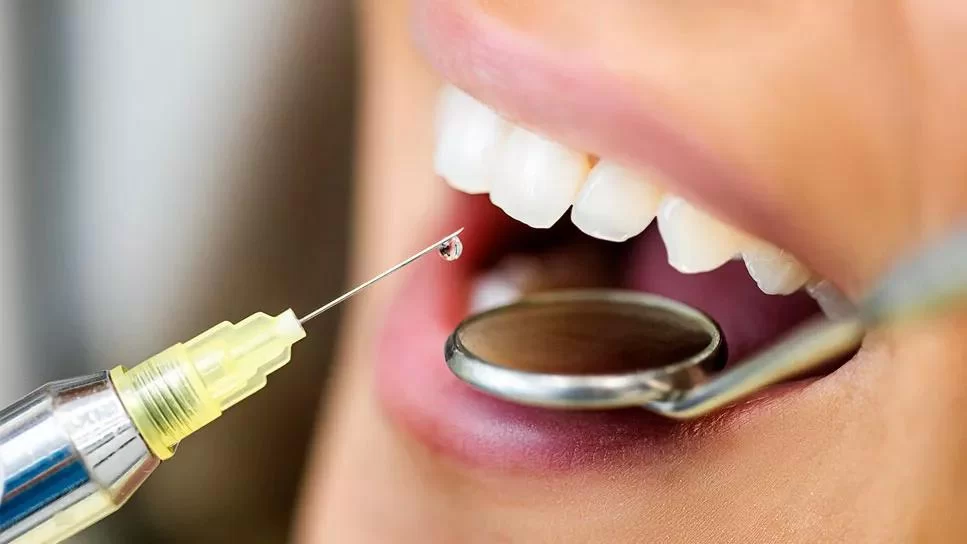
How Long Does Anaesthetic Last at the Dentist? A Comprehensive Guide
Visiting the dentist can be a nerve-wracking experience for many people. One of the most common concerns I’ve encountered over the years as a patient is the fear of pain during dental procedures. Thankfully, modern dentistry offers a variety of anaesthetic options that can help numb the area, allowing for a more comfortable experience. But once the anaesthetic is administered, how long does it actually last? That’s a question I’ve wondered about myself, and it's something that many others ask, especially when it comes to longer procedures like root canals, extractions, or fillings. In this article, I’m diving deep into how anaesthetics work in dentistry, how long they last, and what you should expect during and after your procedure.
1. What is Dental Anaesthesia?
Before we get into how long anaesthetic lasts, let’s first understand what dental anaesthesia is and how it works. Dental anaesthesia is a technique used by dentists to numb the area around the teeth and gums, ensuring that patients don't feel pain during procedures. There are different types of anaesthesia that may be used in dental procedures, and each works in slightly different ways depending on the procedure’s complexity and the level of discomfort anticipated.
The most common anaesthetics used in dentistry are local anaesthetics. These are administered directly to the area being treated, usually via an injection into the gum near the tooth. The anaesthetic blocks the nerve signals in the targeted area, effectively numbing the nerves and preventing pain during treatment. As someone who has experienced dental work myself, I can say that the sensation of the needle is brief, and the numbness kicks in almost immediately after the injection.
2. Types of Dental Anaesthesia
There are a few different types of anaesthesia that your dentist may choose from based on your procedure and comfort level:
- Local Anaesthesia: This is the most common type used in dentistry, especially for procedures like fillings, cleanings, and extractions. Local anaesthesia numbs the specific area where the procedure will occur.
- Conscious Sedation: This involves using sedatives in addition to local anaesthesia to help patients feel more relaxed. It’s often used for patients with dental anxiety or for longer procedures.
- General Anaesthesia: Used less frequently, general anaesthesia puts the patient into a deep sleep, making them completely unconscious during the procedure. It’s generally reserved for complex or lengthy surgeries.
3. How Long Does Local Anaesthetic Last in Dentistry?
Now, the big question: how long does dental anaesthesia last? Well, the duration of local anaesthesia can vary depending on several factors, including the type of anaesthetic used, the area being treated, and how your body reacts to the anaesthetic. In general, the effects of local anaesthesia used in dental procedures last anywhere from one to three hours.
For minor procedures like a simple filling or cleaning, the anaesthetic might wear off within an hour to an hour and a half. On the other hand, if you're undergoing a more extensive procedure, such as a tooth extraction or root canal, the anaesthetic may last longer, sometimes up to two or three hours. I recall when I had a wisdom tooth extracted, my mouth remained numb for almost two hours, which gave me plenty of time to finish the procedure comfortably.
4. Factors That Affect How Long Anaesthetic Lasts
Several factors can influence how long your dental anaesthetic lasts, and it’s important to be aware of these. As a patient, I found it helpful to understand these variables so I could better gauge what to expect:
- Type of Anaesthetic: Some local anaesthetics are designed to last longer than others. For example, lidocaine is a common anaesthetic that lasts around 1-2 hours, while other anaesthetics like articaine may last a bit longer, providing numbness for up to 3 hours.
- Location of Injection: The area in which the anaesthetic is injected can also affect its duration. For instance, anaesthesia around the lower jaw may last longer due to the density of the bone structure, compared to the upper jaw.
- Metabolism: Your body’s metabolic rate plays a role in how quickly the anaesthetic wears off. People with faster metabolisms may feel the effects of anaesthesia wear off more quickly, while others may experience prolonged numbness.
- Size of the Area Treated: The size and complexity of the treatment area also impact the duration of anaesthesia. A more involved procedure will likely require more anaesthetic, which may last longer.
5. What to Expect After Anaesthetic Wears Off
After the anaesthetic wears off, you may experience some discomfort, especially if the procedure was more invasive. However, it’s important to note that any residual pain should be manageable and may not be as intense as the discomfort you’d feel without the anaesthesia. Most patients experience some level of numbness for a short while, followed by a dull ache or soreness in the treated area. This was definitely my experience after a tooth extraction, and I appreciated the brief period of relief that the anaesthesia provided.
If you feel significant pain after the anaesthetic wears off, it’s important to contact your dentist, as it could be a sign of complications. However, for the most part, the discomfort is temporary and can be managed with over-the-counter pain medications like ibuprofen. In my case, I was able to manage the discomfort with some ice packs and pain relievers, which made the post-procedure healing process much easier to handle.
6. Tips for Managing Anaesthetic Aftercare
Once the anaesthetic starts to wear off, there are a few things you can do to make sure your recovery goes smoothly:
- Avoid biting or chewing the numbed area: I learned this the hard way. The numbness can make it difficult to feel what you’re doing, and you might accidentally bite your cheek or tongue. It’s best to wait until the numbness subsides before eating.
- Use ice packs: Applying ice to the outside of your face can help reduce swelling and discomfort after a procedure.
- Take pain relievers as recommended: Your dentist may advise over-the-counter pain medications or prescription pain relievers if necessary.







 Drs. Trava, Oh, Petix, Shon & Yang4.0 (21 review)
Drs. Trava, Oh, Petix, Shon & Yang4.0 (21 review) All Smiles By Design4.0 (549 review)
All Smiles By Design4.0 (549 review) Richboro Smiles4.0 (29 review)
Richboro Smiles4.0 (29 review) Monica Patrick Orthodontics0.0 (0 review)
Monica Patrick Orthodontics0.0 (0 review) ChapCare by AltaMed Medical and Dental Group — Pasadena, Fair Oaks3.0 (47 review)
ChapCare by AltaMed Medical and Dental Group — Pasadena, Fair Oaks3.0 (47 review) Smiles 4 Kids4.0 (550 review)
Smiles 4 Kids4.0 (550 review) The Importance of Oral Health Education During Pregnancy for a Healthy Pregnancy
The Importance of Oral Health Education During Pregnancy for a Healthy Pregnancy Best Tips for Brushing Your Teeth Properly for Healthy Gums: Essential Techniques for Oral Health
Best Tips for Brushing Your Teeth Properly for Healthy Gums: Essential Techniques for Oral Health Why Skipping Dental Checkups Can Lead to Bigger Oral Health Problems
Why Skipping Dental Checkups Can Lead to Bigger Oral Health Problems Advantages of Porcelain Dental Restorations
Advantages of Porcelain Dental Restorations How Can Diabetes Cause Tooth and Gum Problems? Preventing and Managing Oral Health Issues
How Can Diabetes Cause Tooth and Gum Problems? Preventing and Managing Oral Health Issues Healthy Habits for Promoting Good Oral Health and Hygiene: Tips for a Healthy Smile
Healthy Habits for Promoting Good Oral Health and Hygiene: Tips for a Healthy Smile